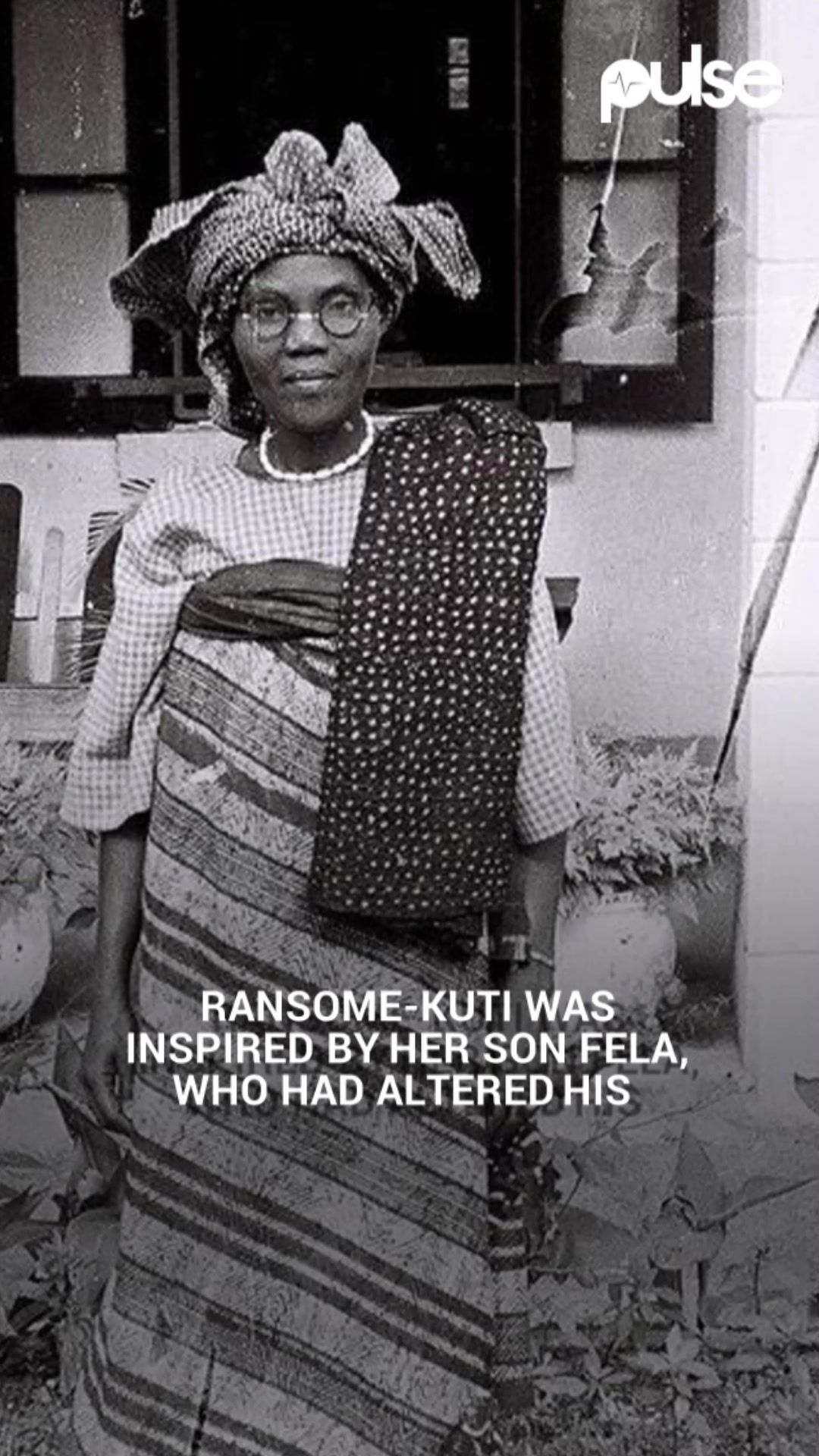The film, which hit cinemas last weekend, offers fresh perspectives on the life of the famous educator, activist, wife, mother, and giver of good trouble than any Social Studies class ever would.
There are many reasons Bolanle Austen-Peters' new biopic, Funmilayo Ransome-Kuti, based on the life of the activist, is as relevant today as it would have been in the early 20th century when it is set; unfair, unexplainable taxes, a government that oppresses its people, a people too used to oppression are all familiar tropes.
But above all, the film, which hit cinemas last weekend, offers fresh perspectives on the life of the famous educator, activist, wife, mother, and giver of good trouble than any Social Studies class ever would. How is it that a woman so resplendent and noble could have been reduced simply to the first woman to drive a car in Nigeria?

Austen-Peters could not have sought to answer this question at a better time. The parallels between Funmilayo Ransome-Kuti and modern-day Nigeria are stark, or maybe nothing has changed all these years since British colonial rule was brought to its knees.
ALSO READ: Kehinde Bankole wants you to know Funmilayo Ransome-Kuti did more than drive a car
By focusing on the singular Abeokuta Women's Revolt (also called the Egba Women's Tax Riot), a resistance movement led by Ransome-Kuti, in the late 1940s against the imposition of unfair taxation by the Nigerian colonial government, Austen-Peters streamlines the scope of the movie into a useful trojan horse to smuggle contemporary irritations about the government, death of protest and hope and a need for a provocative leader at a time of great economic upheaval. For the Abeokuta Women, it was unfair taxation, the local chiefs and the law enforcement officials who sought to enact the will of their colonial masters.

These days, it’s also unfair taxation, rising rates of electricity tariffs, inflation, subsidy removal, and law enforcement officials that carry out their jobs with impunity. Today, the fate of those who seek this type of activism is worse than dire.
Just as the Abeokuta Women were assaulted and beaten to a stupor by their government in 1947, in October 2020, the Muhammadu Buhari-led government descended on the EndSARS protesters with terror, violently killing some.
The life of Ransome-Kuti is as inspiring as it is defiant, even years before she founded the Abeokuta Women's Union (AWU). As the first female student at her secondary school, she warded off bullies who told her she didn't belong in a school because she was female.
In the film, there is no shortage of great performances. Kehinde Bankole delivered a terrific performance as a middle-aged Ransome-Kuti leading the charge for fair taxes, as did Ibrahim Suleiman as her lover and husband, Isreal Ransome-Kuti.

The set design and costume perfectly capture the trends of the era, revealing the sharp class divide between the lives of those who had travelled to Europe to get a Western education and those who stayed back in Abeokuta tilling the soil.
There are many ways that Funmilayo Ransome-Kuti could have gone south very quickly. If Austen-Peters had allowed the movie to cover a broader scope of Ransome-Kuti’s life, say as an educator or mother, perhaps the story would have been crushed under its own weight.
ALSO READ: Amina, Ayinla, Funmilayo Ransome-Kuti, now Wole Soyinka – Nollywood enters biopic era
But with this film, Austen-Peters cements herself as one of those few Nollywood directors who refuse to blame meagre budgets for their mediocrity but rather opts to get their hands dirty by producing quality content that stands out because the entire production tried breathlessly to be excellent.
By far, Funmilayo Ransome-Kuti is one of the best biopics out of Nollywood in recent times.
![‘Funmilayo Ransome Kuti’ is set to hit the cinemas nationwide on May 17 [IMDb]](https://ocdn.eu/pulscms/MDA_/4535f3d60d4afb6627bf5f2997d5ce6e.jpg)
There are scenes that will make the audience gasp at a woman so provocative and defiant in her service to the people. There are scenes that will make the audience laugh. What Funmilayo Ransome-Kuti invites us to do is reconsider our contributions to the failures of the Nigerian state. We all have played a role. Austen-Peters says we should be more like the Abeokuta Women.
from Pulse Nigeria https://ift.tt/SpcXRFE
via gqrds

0 Comments